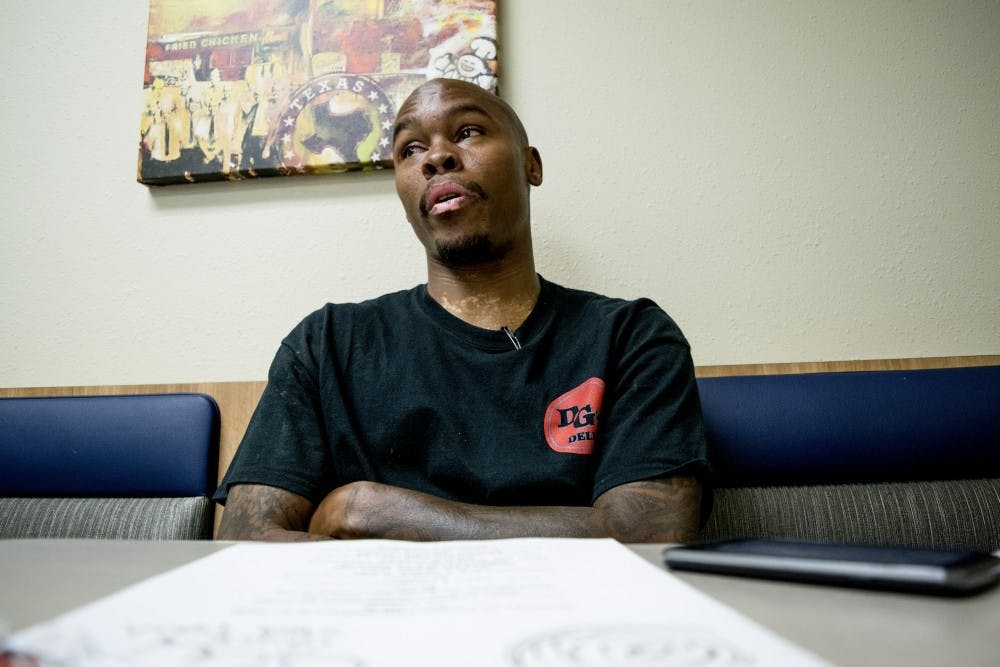The second Black Lives Matter panel meeting of the semester, “Black Lives Matter at UNM: Campus Climate in the Age of Colorblind Politics,” is set for Tuesday at 5:30 p.m. in the SUB Lobo A and B to discuss how to make campus more inclusive for black students and faculty.
The panel discussions are open to all students, and aim to address discrimination facing African Americans, and to propose possible solutions that can be applied throughout UNM.
Gary Allison, one of the BLM panelists, said that "colorblind politics" denies the impact of race and discrimination, suggesting issues have been solved when data in the areas of employment, housing, education and healthcare show the opposite.
The higher education system wasn’t set up for the success of black students, Allison said.
“Some black students go through their entire college experience without taking a course from a black professor,” he said, adding that many black students may be the only black person in their courses.
Many black students don’t have family members who have been to college, Allison said. These students lack mentorship, and internalize messages about whether or not they belong, he said.
Allison said minority groups are often kept out of colleges with the pressure on colleges to improve graduation rates.
“The easiest way to boost metrics are to not increase recruitment for groups that you haven’t had much success with,” he said.
Tactics that deny groups like these include raising SAT/ACT test scores for entry, increasing the number of credit hours students have to take to maintain scholarships, and forcing students with financial difficulties to live in dorms, Allison said.
UNM needs to acknowledge that it hasn’t been action-oriented in response to issues that black students, staff and faculty face on campus, he said.
Kayla Wilcoxson, another panelist on the BLM discussion, said that UNMPD, which includes many ex-APD police officers, could lead to black students being targeted on campus.
“APD has a record of targeting people of color,” she said.
Get content from The Daily Lobo delivered to your inbox
Wilcoxson said that, under the umbrella of ethnic studies at UNM, Africana studies is the only program that has not been promoted to a department, while other studies such as Chicano studies and Native American studies have been departmentalized.
Africana studies major Reginald Johnson said he wasn’t able to call his professors in the Africana Studies Department when the program’s phone line was down for an entire semester.
He said it’s unlikely that a department like engineering would be left without a phone line for that long.
Johnson is a member of Alpha Phi Alpha fraternity, the first collegiate African-American organization.
In the past, A Phi A’s step-dance performances helped students on campus to bond, he said.
“Everyone wanted to be where the step show was happening. It unified the atmosphere at UNM whether they were black, white or Hispanic. We killed it,” Johnson said. “I would say those moments on campus are currently few and far between.”
Things are difficult for the black community with wide-spread awareness of unwarranted deaths of black men that continue to happen with no consequence, he said, adding that the current climate is one of fear and aggression.
“Some African-Americans feel like it’s open season on them, and it’s scary,” Johnson said. “It happens all the time, and it happens here at home.”
Johnson’s cousin was shot and killed by an Albuquerque police officer just last year, he said.
The UNM black community is disconnected from the rest of the campus, Johnson said.
“A separation is present, and you can feel that,” he said. “There is distance from my fraternity as well as other black organizations. Black events aren’t entirely supported.”
Black Student Alliance Co-President Jacklyn Asamoah said the organization is holding UNM accountable for demands made early this year in terms of increasing black faculty and black student success.
There’s about two to four percent black students out of the total campus population, Asamoah said, while only about two percent of UNM faculty are black, which is half the national average on campuses.
Black faculty aren’t recruited in areas such as physics, humanities and engineering, she said, and there needs to be black representation in all departments.
Black students are also not informed about African-American Student Services at new student orientation, and are not introduced to the ethnic center, Asamoah said.
“Black students don’t know who to turn to when they face common micro-aggressions in classrooms,” she said. “We’re working on establishing a connection early on, so black students will actually want to stay at UNM.
Sara MacNeil is a news reporter at the Daily Lobo. She can be reached at news@dailylobo.com or on Twitter @sara_macneil.






